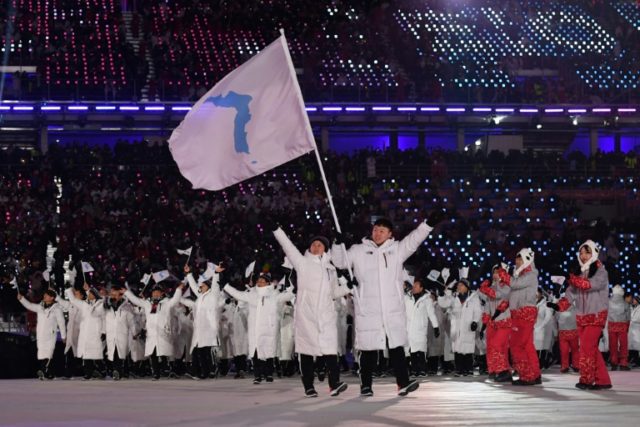South Korea’s Gangwon Province faces huge debts after hosting the 2018 Winter Olympics this year, becoming the latest venue to suffer in the aftermath of holding a large-scale international sporting event.
According to a report from South Korean newspaper Chosun Ilbo on Wednesday, the mountainous province has incurred most of the cost of hosting the games, with many workers still demanding unpaid wages. This month, a group of subcontractors held a press conference demanding eight billion won ($7.2 million) they say they are owed.
The province also faces the extremely high cost of maintenance for the games’ venues, such as the speed skating rink and ice hockey center now, many of which now sit empty. The cost of maintenance until 2022 is expected to be around 20.3 billion Korean won, equivalent to roughly $18 million.
Environmentalists and local officials are embroiled in an ongoing dispute over the alpine skiing venue in Jeongseon, built on a 101-hectare piece of land formerly owned by the Korea Forest Service. Despite footing just a quarter of the bill for the area’s reconstruction, locals want to keep the facility and use it to boost the local economy. The Korea Forest Service claims that they allowed the reconstruction on the premise that the land would be returned afterward, a position backed by environmentalist campaigners.
The governor of Gangwon Province, Choi Moon-soon, has called for additional financial support for the federal government. The central government has refused the request over fears it could set a bad precedent for future allocation of state funds. Instead, they have commissioned a “feasibility study” to determine whether more funds should be released to help secure its Olympic legacy.
“Most of the Olympic legacies have either been demolished or are gathering dust, causing a tremendous amount of disappointment for local residents,” Choi said. “We need urgent financial support from the government.”
South Korea’s President Moon Jae-in is likely to have seen the hosting the Winter Olympics as a success, especially as it provided the precursor to a rapprochement in relations with Kim Jong-un and North Korea. South Korea spent millions on hosting both the North Korean Olympics team, a hundreds-strong entourage, and regime officials, including Kim Jong-un’s sister Kim Yo-jong. The games gained little traction in the United States, with viewing figures ten percent lower than during the 2014 games in Sochi.
The issues PyeongChang is experiencing mirror that of other Olympic games, the most recent example being the 2016 Olympic games in Rio de Janeiro, where dozens of venues lay empty or in ruins. In the run-up to the Rio games in 2016, protesters complained that the government was prioritizing international caché over genuine economic development. Their fears have since been confirmed after the government spent around $13 billion on an event that has had little impact on social inequality.
Meanwhile, similar issues of abandoned stadiums and huge costs surround the legacy of the 2014 Winter Olympics in Sochi, which cost Russia a staggering $51 billion. However, the city has reportedly seen an uptick of visitors as a result of improved infrastructure, although many continue to point out the negative environmental impact of holding such a competition.
Follow Ben Kew on Facebook, Twitter at @ben_kew, or email him at bkew@breitbart.com.

COMMENTS
Please let us know if you're having issues with commenting.